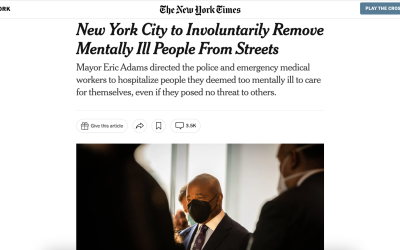Taking the advice of Dr. Hanson, I’m going to write about the messy and massive issue that is social media and moderation. I would like to write an editorial about the topic, but I’m unsure of the angles and what my claims would look like.
So, let’s begin with the news article that started this.
The Washington Post published a news article over social media policies likely being taken to the Supreme Court. There has been trouble in Texas (which is inherently messy to begin with, so keep that in mind) and Florida surrounding lower court rulings over content moderation on social media platforms.
The issue that would be taken to the Supreme Court would determine if the First Amendment protects Big Tech’s, “editorial discretion or forbids its censorship of unpopular views”.
There has been discrepancy over how to handle social media, a new media, and if it should take on the characteristics of traditional media, which has been protected by the First Amendment (newspapers control what they can and can’t print), or if it needs to be handled differently as an ever-evolving and growing form of public communication and information.
Big Tech giants like, Facebook and Twitter, are most notable for content moderation, especially relating to removing hateful content and misinformation. Republican politicians have fought especially hard with the tech companies for removing their content usually aimed at other political figures or government issues like elections.
This is also surprising, especially when one takes into account Republicans’ attitudes towards keeping private businesses and their policies private.
In Texas (yes, the incredibly messy state), a “divided” panel of the U.S. Court of Appeals for the 5th Circuit upheld a Texas law barring companies from removing posts based on Political ideology. This move was greatly favored by Texas Attorney General Ken Paxton (R), for ending the “reign of endless censorship and their suppression of conservative viewpoints”.
Now, compare that to the unanimous panel of the U.S. Court of Appeals for the 11th Circuit in Florida who recently ruled earlier in the year, that a Florida law actually, “violated constitutional protections for tech companies that do not want to host views on their platforms that they find hateful, divisive or false.”
The trouble here is conflicting precedents set with traditional media and how they apply to new media.
Another key factor to keep in mind is that these Big Tech media companies are private companies. While they are free to sign up and use, a user is also agreeing to the terms and services set by that specific company. So, while the First Amendment would protect the right to free speech on other public forums and sites, a private social media platform is exercising its right to moderating content.
https://www.washingtonpost.com/politics/2022/09/19/texas-florida-social-media-laws/
https://www.washingtonpost.com/technology/2022/09/21/florida-social-media-supreme-court-scotus/
https://www.washingtonpost.com/technology/2022/09/16/5th-circuit-texas-social-media-law/




0 Comments